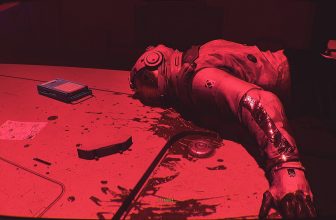Bethesda Game Studios fans had already been returning to Oblivion on-and-off for years – though, not as frequently as some dip back into Skyrim – even before Bethesda put the 2006 RPG back in the limelight with The Elder Scrolls 4: Oblivion Remastered. But what is it that keeps people, and now the studio, coming back for seconds (and thirds and fourths)? Bethesda’s studio director says it’s because the game itself feels like it changes upon every revisit.
GamesRadar+ caught up with Tom Mustaine, BGS’ studio director, at The Golden Joystick Awards 2025 to get his perspective on why Oblivion’s enjoyed such a long shelf life. Mustaine’s personal, anecdotal answer is that “every time I play the game, I end up doing something completely different, and I experience [new] things even after I’ve played it so many times – I’ll go a different direction and have a different set of experiences.” And that’s despite knowing all of the game’s tricks by memory.
“It speaks to the the sticking power of how that game is built,” he continued, adding that returning to it via the remaster “was a little bit like opening an old chest, and going… ‘Man, there’s a lot of amazing elements in here that we built, you know, 20 years ago, and were built as best as they could be built back then.'”
Developing the remaster almost two decades later was, for Bethesda, an opportunity to “put a fresh coat of paint on areas and make some conscious decisions about what to modernize and what not to modernize.” After all, Oblivion wouldn’t be half as memorable without the jank that lets villagers get into spontaneous fist fights, say.
“Those were some really interesting conversations and discussions [we] had, and it was tough,” Mustaine added. “We internally were deciding, ‘Do we want to do this or not?'” That was before the team decided that it just “makes sense,” as long as “we’re not stepping on the legacy [and] we’re not breaking the game.”
After Oblivion Remastered and Hi-Fi Rush, Bethesda Game Studios director wants more shadowdrops because “we all have short attention spans now”








